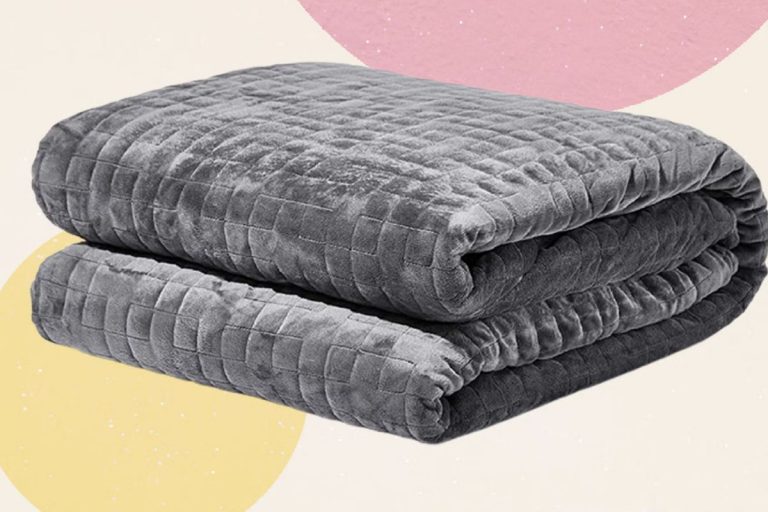While many would consider frequent bouts of snoring a cause for concern, chronic snoring may be a sign of a more severe underlying sleep disorder—sleep apnea.
Sleep apnea—a condition characterized by spates of breathing stopping and restarting, is a potentially critical sleep disorder that can breed several severe health complications. When left unchecked, research shows that sleep apnea can increase the risk of other medical problems like heart disease, high blood pressure, heart attacks, stroke, and type II diabetes.
Important: Incessant snoring is a definite sign that you may have sleep apnea, and you should see a qualified health practitioner as soon as possible for an examination.
Other symptoms of sleep apnea may include fatigue even after full 8-hour sleep sessions, intermittent sleep interruptions, moodiness, and shortened attention span.
To highlight the importance of this often-overlooked disorder, the National Healthy Sleep Awareness Project includes a “Stop the Snore” campaign that is fully dedicated to creating awareness about sleep apnea.
Now, new research is indicating that the potentially far-reaching effects of this condition can also extend to the brain.
So, how does sleep apnea affect the brain?
How Sleep Apnea Changes the Brain
Thanks in part to the significant success of the “Stop the Snore” campaign, it is now common knowledge in many spheres that sleep apnea can influence a host of several severe health complications. According to emerging research, another possible negative impact of sleep apnea is a degradation of brain structure and function.
Sleep apnea happens in one of two ways—a relaxation of the throat muscles that block airflow, or the failure of the brain to send the right signals to the muscles that manage the breathing process.
In either case, this blockage impedes breathing and hinders the flow of oxygen to the brain as well as other body systems. Here, the potential for damage to the brain rises dramatically with every added second of blockage.
In one 2010 study published in the American Academy of Sleep Medicine, researchers found a significant disparity in the brain matter of subjects with obstructive sleep apnea.
The study, which involved the neuroimaging of 36 male subjects with a recent obstructive sleep apnea diagnosis, showed explicitly that the participants with the condition had significantly less gray matter concentration in their brain compared to the 31 healthy control subjects.
According to the results, researchers reported decreased gray matter concentration in the cerebral cortex, the prefrontal cortices, cerebellum, and limbic structures of diagnosed subjects.
However, the researchers noted that the subjects still require more research to ascertain if sleep apnea is the cause of the loss in gray matter concentration, or if the reverse is the case and preexisting abnormalities in gray matter may predispose subjects to develop the condition.
Nevertheless, the possible link between this discovery and many symptoms of sleep apnea is immediately apparent.
The areas of the brain in question are essential for memory storage—which can explain problems like executive dysfunction, memory impairment, spates of moodiness, and impairments to cognition that often appear in people with obstructive sleep apnea.
Note: While sleep apnea can affect all types of people, including children, the following segments of the population have a higher risk factor:
- Men
- The elderly
- Obese people
- People with a broader neck circumference
- People with high blood pressure or type II diabetes
- People with tonsils or adenoids
- People with a family history of the condition
Lifestyle choices like excessive use of alcohol and sedatives or smoking also increase the likelihood of developing this condition.
Obstructive sleep apnea of varying intensity affects 1 in 15 adults. Hence, if you experience persistent breathing pauses during sleep, you should consider visiting a healthcare professional as soon as possible.
Also Read: Coronavirus Concerns for Patients with Sleep Apnea
Sleep Apnea’s Impact on Brain Function
People with obstructive sleep apnea often exhibit symptoms of impaired brain function, including trouble concentrating or recalling things and reduced cognition, as well as fluctuating moods, increased stress, irritability, depression, and anxiety.
1. Memory Loss
One of the most apparent impacts that sleep apnea has on the brain is its effect on memory storage and utilization. People with this condition often exhibit several different signs of mental impairments with memory loss at the fore.
This disruption in memory can result from any of the many different facets of the condition.
First, people with sleep apnea suffer a massive deficit in restoration sleep with constant interruption through the night, and this can place considerable strain on memory processes in the brain. The consolidation and storage of daytime experience happen at night during REM sleep, a sleep stage that people with sleep apnea rarely reach or stay in for extended periods.
Also, the emerging reports mentioned above point to the possibility of brain damage induced by sleep apnea in the prefrontal cortices, cerebellum, and limbic structures, all structures vital for the proper creation and utilization of memories.
Consequently, chronic obstructive sleep apnea, especially when left untreated, typically leads to memory loss and forgetfulness.
Furthermore, in one new study from New York University, researchers found possible links between sleeping-disordered breathing and the early onset of Alzheimer’s disease in the elderly.
2. Reduced Cognition
Recent research also explains another notorious symptom of sleep apnea: depleted cognitive ability.
In the neuroimaging study, researchers reported decreased gray matter concentration in the cerebral cortex, a critical region of the outer brain that is partially responsible for managing higher functions like thinking, memory, and speech. Furthermore, this brain region also manages sensual functions like hearing, sight, smell, and touch.
Consequently, it is no surprise that people with obstructive sleep apnea often report significant difficulty in maintaining focus at school or work, issues with solving problems and creativity, and reduced decisiveness.
3. Impaired Mood Regulation
Another common issue that many sleep apnea patients report, inconsistency in their moods, also comes from the impact the condition has on the brain.
In one study in the Journal of Sleep Research, UCLA researchers found an association between obstructive sleep apnea and low GABA levels and increased glutamate in the brain’s insular cortex.
GABA is a critical natural-occurring inhibitory neurotransmitter in the brain. The role of this amino acid is to block specific brain signals that are overly emotionally charged, hence, reducing the excitability of your nervous system and calming you down.
Meanwhile, glutamate swings the other direction, as increased levels of this neurotransmitter increases stress levels in the nervous system.
Consequently, the effect that obstructive sleep apnea has on GABA and glutamate levels in the brain may explain the volatile mood swings and increased irritability that often comes with the condition. However, getting terrible sleep doesn’t help, as well.
4. Poorer Reaction Time
The impact of sleep apnea on the brain also accounts for the slower response to stimuli in people with the condition. This symptom stems from the fact that with obstructive sleep apnea, getting adequate restorative sleep is impossible, and this can slow down your nervous system and negatively impact your motor skills.
In one study in the Journal of Occupational and Environmental science, researchers found that moderate sleep deprivation can produce impairments in cognitive and motor performance equivalent to alcohol intoxication.
With obstructive sleep apnea, the constant sleep disruptions can add up quickly and put people with the condition in a perpetual state of slower reaction time, reduced motor skills, and fatigue.
Can the Brain Damage from Sleep Apnea be Reversed?
The good news is that the reduction in gray matter concentration from sleep apnea does not have to be permanent. In new research into possible solutions for obstructive sleep apnea, researchers found that CPAP therapy is effective for repairing the impairment to the brain.
This study, which involved the observation of brain scans of 17 men with severe sleep apnea, showed an almost complete reversal of all white matter damage after 12 months of CPAP therapy.
Continuous Positive Airway Pressure (CPAP) is one of the leading remedies for obstructive sleep apnea. With this system, patients wear a nasal or face mask that helps to neutralize the condition during sleep.
A CPAP mask stays connected to a pump that provides a constant stream of positive airflow to keep the airways open even when the regulatory muscles relax.
CPAP machines can help to significantly improve the quality of sleep in people with obstructive sleep apnea, helping them feel less fatigued, and giving their brain the oxygen it needs to repair itself.





